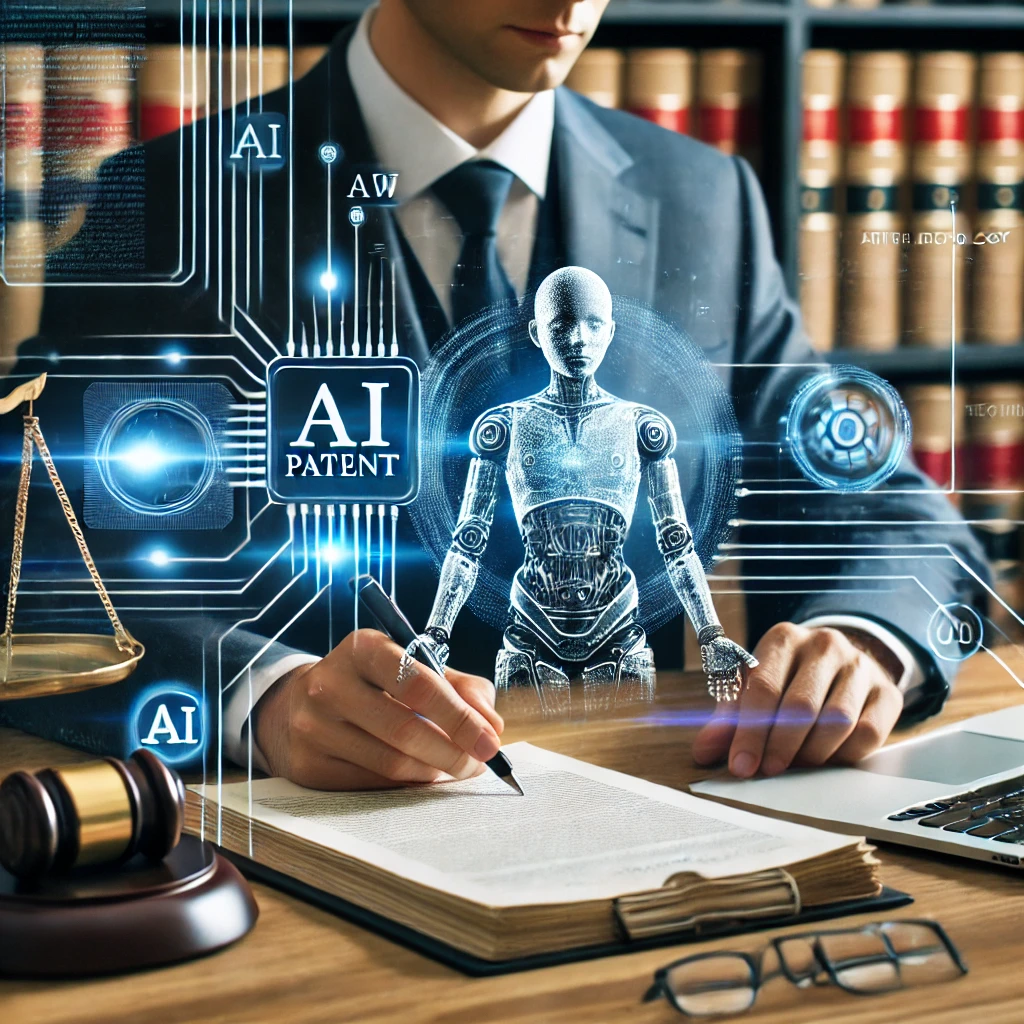Artificial Intelligence (AI) is revolutionizing industries worldwide, from healthcare and finance to automation and entertainment. As AI technology advances, protecting your intellectual property (IP) becomes increasingly critical. If you’re an AI developer, entrepreneur, or business owner, securing your AI innovations with patents ensures that your ideas remain legally protected from competitors.
This is where an AI patent application lawyer becomes invaluable. These specialized attorneys help navigate the complex landscape of AI patents, ensuring your inventions receive the strongest legal protection possible. In this article, we’ll explore why you need an AI patent lawyer, the challenges in patenting AI technology, and how to choose the right legal expert for your needs.

Why AI Patent Protection Matters
AI-driven solutions are becoming key differentiators in business, making them highly sought-after intellectual property assets. Without proper patent protection, your AI innovations can be copied, modified, or used without your permission, potentially costing you millions in lost revenue and market share.
Key Benefits of Patenting AI Innovations
- Exclusive Rights: A patent grants you exclusive rights to your AI technology, preventing competitors from using or selling similar inventions.
- Increased Valuation: Patented AI inventions are seen as valuable business assets, attracting investors and boosting company valuation.
- Market Advantage: With legal protection, your AI innovation maintains a competitive edge by preventing unauthorized replication.
- Licensing Opportunities: AI patents can be licensed to other businesses, creating new revenue streams.
- Legal Recourse: Patents allow you to take legal action against unauthorized use, ensuring your work is safeguarded.
Challenges in Patenting AI Innovations
While AI patents offer significant advantages, they also come with unique challenges that require expert legal guidance.
1. Defining AI Inventions Clearly
AI algorithms and machine learning models often involve complex and abstract concepts, making it difficult to meet the patent eligibility criteria. An experienced AI patent attorney can help define your AI invention in clear terms that comply with patent laws.
2. Meeting Patentability Requirements
To be eligible for a patent, an AI invention must be:
- Novel (new and not previously disclosed)
- Non-obvious (not an obvious extension of existing technology)
- Useful (it must have a practical application) Meeting these requirements often requires a detailed and strategically written patent application, something an AI intellectual property lawyer specializes in.
3. Navigating Patent Office Regulations
Different countries have varying rules regarding AI patents. For instance, the United States Patent and Trademark Office (USPTO) has specific guidelines on AI-related patent applications. A skilled AI patent application attorney understands these rules and ensures your application complies with them.
4. Addressing AI Ownership Issues
With AI systems capable of generating their own outputs, questions arise about the ownership of AI-generated content. A knowledgeable AI patent law firm can provide guidance on structuring patents that cover AI-generated inventions effectively.
How an AI Patent Application Lawyer Helps
An AI patent lawyer specializes in drafting, filing, and prosecuting patent applications for AI-related technologies. Here’s how they add value:
1. Conducting Prior Art Searches
Before filing a patent, your lawyer will perform a prior art search to determine if similar AI technologies already exist. This helps refine your application and improves the chances of approval.
2. Drafting a Strong Patent Application
A well-drafted AI patent application clearly describes the invention, its novelty, and its practical applications. AI patent lawyers use their expertise to ensure your application meets all legal requirements while maximizing protection.
3. Filing and Prosecuting the Patent
Once drafted, your attorney will file the application with the USPTO (or relevant patent office) and handle communications with patent examiners, addressing any rejections or objections.
4. Defending Against Patent Infringement
If someone uses your AI innovation without permission, an AI patent litigation lawyer can take legal action on your behalf, ensuring your rights are upheld.
5. Licensing and Commercialization Support
Your lawyer can assist in licensing agreements, helping you monetize your AI patent through partnerships, joint ventures, or technology transfers.
Choosing the Right AI Patent Lawyer
Selecting the right legal expert is crucial for successfully patenting your AI innovation. Consider the following factors:
1. Experience in AI Patents
Ensure the lawyer or AI patent law firm has a strong background in handling AI-related patent applications. AI is a specialized field, and general patent lawyers may lack the necessary technical expertise.
2. Success Rate with AI Patent Applications
Look for an attorney with a proven track record of securing AI patents. Ask about previous cases and their success rate in overcoming patent rejections.
3. Understanding of AI Technologies
A good AI intellectual property attorney should have a strong grasp of AI concepts, including machine learning, deep learning, neural networks, and natural language processing (NLP).
4. Knowledge of Global Patent Laws
If you plan to expand internationally, work with a lawyer familiar with global AI patent regulations, including those in the EU, China, and Japan.
5. Client Reviews and Testimonials
Research client reviews and testimonials to gauge the lawyer’s reputation and expertise in AI patent law.